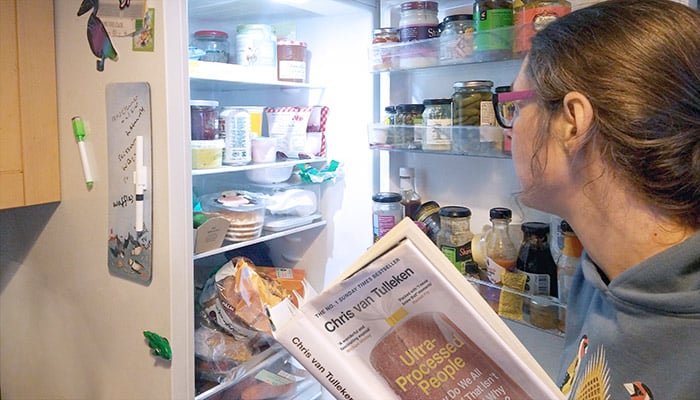 Ultra-processed food (UPF) is everywhere. It’s in every supermarket and every corner shop in Britain. We feed it to children in schools and to patients in hospitals. It’s cheap to buy and even cheaper to make.
Ultra-processed food (UPF) is everywhere. It’s in every supermarket and every corner shop in Britain. We feed it to children in schools and to patients in hospitals. It’s cheap to buy and even cheaper to make.
The food industry wants you to keep eating it to keep their profits high – and they mass market UPF to you accordingly. The government wants you to keep eating it because without UPF there would be even more widespread food poverty and food inequality – and because it would be extremely hard to rein in the food industry and make the systemic changes needed to improve how and what we all eat.
But so what?
So what if children eat chicken nuggets and chips?
So what if we eat frozen pizza followed by salted caramel ice cream?
It’s this “so what?” that doctor and media personality Chris van Tulleken addresses in his fascinating book: Ultra-Processed People: Why Do We All Eat Stuff That Isn’t Food … and Why Can’t We Stop?
The book covers so many aspects of the food industry, from the (ultra) processing itself, to the logic behind the marketing. It deals with food culture (meaning national identities understood through food, rather than mould), breastfeeding and the reach of the formula milk industry, antibiotic resistance, local economies and global trade law.
Is sugar to blame?
Dr Van Tulleken also addresses the thorny issue of the dramatic, almost worldwide, rise in the rates of people living with overweight or obesity, and whether that rise is due to our sitting down lifestyles, or eating more, or eating too much fat or sugar.
For Dr Van Tulleken, it’s not. It’s due to UPF.
UPF is described as addictive. For some, it’s a biological addiction, a genetic set-up that makes some of us crave and eat UPF more than others. For others, it’s not so much a biological addition but the fact that UPF is unavoidable. Even if you don’t eat (much) of it, it’s nearly impossible to escape the marketing.
You eat it because you see it
And the book is full of facts and anecdotes about the increasing (margarine) spread of UPF. For example, a fried chicken company wants you to eat its chicken. So it advertises its brand. But it also has to beat the advertising put out by, say, pizza shops, or burger chains and make you want to eat fried chicken more than them (and certainly more than anything home cooked). Raw, minimally processed foods don’t have anyone advertising them in the same way. You may prefer one supermarket over another, but you’re unlikely to be so attracted to one type of raspberry that you over consume it.
This very readable book also talks a lot about sugar. We have, according to Dr Van Tulleken, a natural aversion to eating excess sugar, but ultra-processed drinks get around this by making them fizzy and serving them ice cold.
To reduce our sugar consumption, companies began reformulating food to use artificial sweeteners instead. Once, these were just little sachets for people to tip into their drink. Now, they’re found in many products: bread, cereals, ketchup, ice cream, toothpaste – making us crave other sweet things and, for sucralose, there is evidence that sweeteners are disrupting our gut microbiome.
Gut feeling
In fact, there’s a whole chapter on the gut microbiome, that dietary rainforest in your belly that is unique to you and helps keep you alive. And how, as well as sucralose, emulsifiers – additives that allow fatty and watery substances to combine – have been shown, on studies in mice, to damage that environment.
The book is also fascinating in how it talks about the wider economics of the food industry and how ultra-processing means you can use whichever ingredient is cheapest at the time. This is particularly the case for vegetable oils. Dr Van Tulleken is not thinking about the olive or sunflower oil on your kitchen counter, but the generic ultra-processed vegetable oils and fats – often palm – found in so many foods: chocolate, cakes, pizzas, spread, nuggets, and so much more.
It also talks the climate impact of UPF, and how overproduction of food – and mass production of a very few food types – limits biodiversity. Incredibly, just 12 plants and 5 animals make up 75 per cent of all food eaten on earth.
Dr Van Tulleken makes clear that UPF isn’t designed to make people sick. It’s not malevolent. It’s just designed to make millions and millions of people eat homogeneous, easy to eat, cheap to produce highly processed food. And in the “process”, he claims, it’s destroying the health of the people and the planet.

